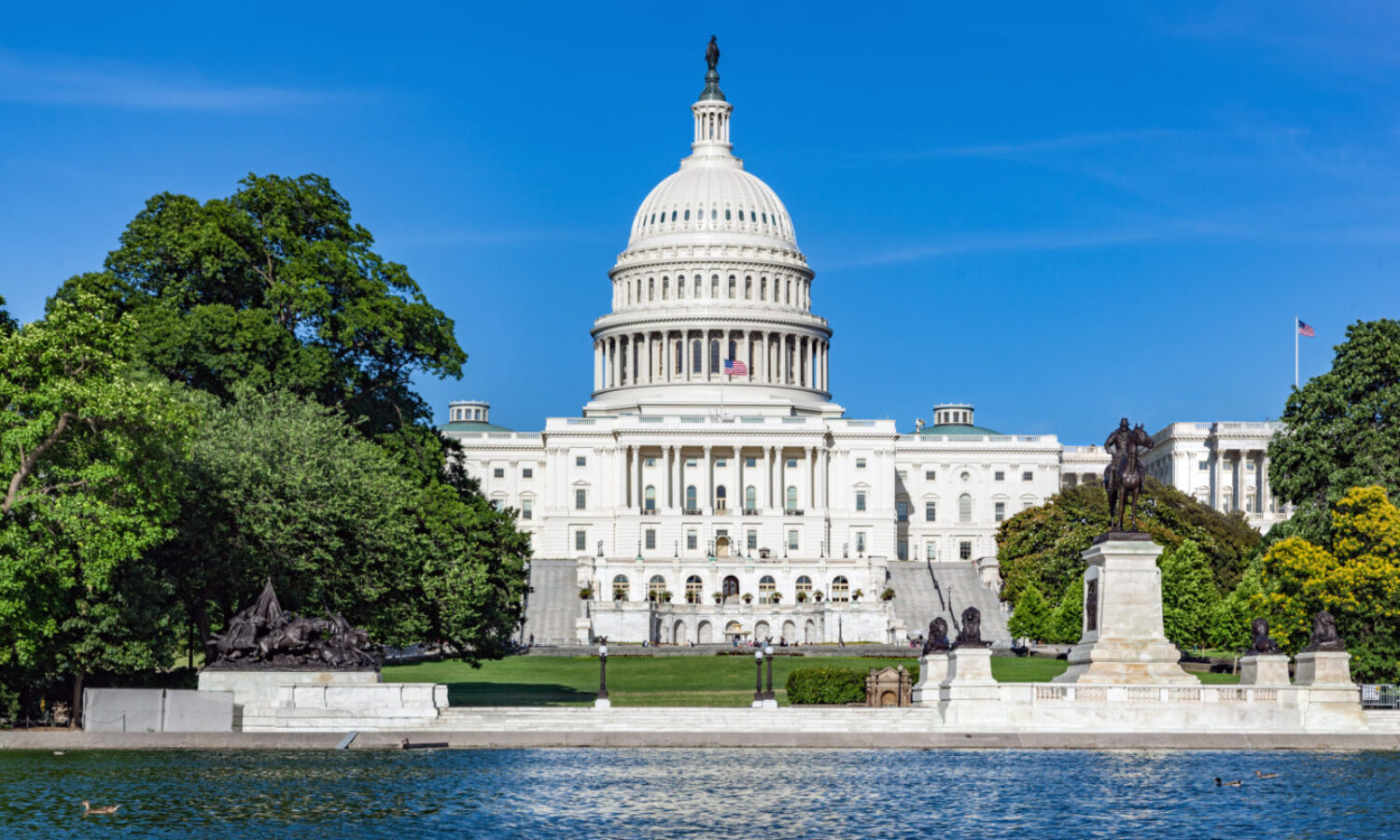i2Coalition March 2021 Legislative Briefing
Your brief update on important Internet policy issues
OUTLOOK
Following the House (220-211) and Senate (50-49) party-line votes to pass the Biden Administration’s $1.9 trillion American Rescue Plan and its enactment into law on March 11, President Biden, Vice President Harris, and other Administration officials launched major public outreach efforts in the states to educate citizens about it and show support for its implementation. In the ongoing battle against COVID-19, accelerating vaccinations is the focal point. Also, public health experts are warning against pulling back on protective public health measures too soon, citing the latest COVID-19 surges in Europe and the growing threat of variants in the U.S. According to the CDC, as of March 22, more than 13% of the total U.S. population has been fully vaccinated.
The Senate has continued its series of confirmation hearings for the Biden Cabinet and senior appointed officials while shifting attention to additional legislative priorities including infrastructure, climate change, and voting access. An intense debate over the filibuster currently looms over the Senate Democrats’ legislative agenda. The House has turned to the sweeping topic of improving the nation’s infrastructure with numerous hearings underway in House committees to address funding for broadband and closing the digital divide, clean energy, energy efficiency, and health care infrastructure, among many issues. The Biden Administration is expected to present major proposals in April. Administration staff is reportedly working on a still-evolving, massive, roughly $3 trillion infrastructure and jobs package.
Tech Policy Priorities
Section 230. Two House Energy & Commerce subcommittees scheduled a March 25 remote hearing addressing online disinformation and misinformation at which the CEOs of Twitter, Facebook, and Google will testify. Bipartisan interest in revising Section 230 is expected to figure prominently in this hearing which continues Congress’ intense scrutiny of the role of the largest social media platforms and tech companies in spreading online misinformation and disinformation as well as allegedly censoring online political speech. More Section 230 reform bills have been introduced in the Senate and House, including S. 797, largely a re-introduction of the bipartisan “Platform Accountability and Consumer Transparency Act” (PACT Act) by Senators Schatz (D-HI) and Thune (R-SD), and H.R. 2000, the “Stop Shielding Culpable Platforms Act” by Rep. Jim Banks (R-IN) and 8 other Republicans. No single Section 230 reform bill has emerged to address fully all of the various concerns lawmakers have raised. Reforming Section 230 is a complex issue not limited solely to “Big Tech.” As the debate unfolds in the 117th Congress and efforts accelerate to revise this foundational Internet law, it is critical that Congress hears from the full, diverse range of entities in the Internet ecosystem that Section 230 covers–from Internet infrastructure providers to small and medium businesses and their users, to libraries, educational institutions, and nonprofit organizations.
Antitrust/Competition. The Judiciary subcommittees on antitrust in the Senate and House have launched hearings to address the state of competition in the tech sector and to consider related antitrust legislative proposals. With U.S. DOJ AG Merrick Garland’s confirmation and swearing-in completed on March 11, the Biden Administration is moving forward on filling key antitrust policy and enforcement positions at the DOJ and FTC.
Federal Privacy. Calls for passing a comprehensive federal consumer data privacy bill have increased in Congress following the state of Virginia’s enactment of a comprehensive consumer data privacy law and ongoing debate and interest in consumer privacy bills in numerous other states. Toward that end, Representative Suzan DelBene (D-WA) introduced the “Information Privacy and Personal Data Control Act.” DelBene has emphasized that consumer data privacy is an international issue as much as it is a domestic concern and that if the U.S. does not establish a clear domestic policy, it will not be able to shape standards abroad, and risks letting others, like the European Union, drive global privacy policy.
Copyright. Numerous stakeholders provided input by March 5 to Senate IP Subcommittee Ranking Member Senator Thom Tillis (T-NC) regarding his discussion draft Digital Copyright Act of 2021, and Senator Tillis is assessing the next steps. IP Subcommittee Chair Senator Leahy (D-VT) and Ranking Member Senator Tillis continue to collaborate to support enhanced enforcement efforts to combat online piracy.
Broadband. New funding for broadband deployment in unserved and underserved areas is part of the massive infrastructure legislation under consideration in Congress. The issue has taken on increasing urgency given the impact of COVID-19 forcing major societal shifts to online work, education, and commerce, among other things. The House infrastructure bill introduced by Energy and Commerce Committee Chairman Frank Pallone (D-NJ) includes more than $100 billion to expand broadband Internet access to unserved and underserved communities. Lawmakers are closely monitoring the FCC’s current efforts under existing statutory mandates and funding mechanisms to generate more accurate broadband mapping so that broadband deployment funding resources can be allocated properly.
For more in-depth updates on Internet policy that impact your organization, please contact us about joining the i2Coalition.


